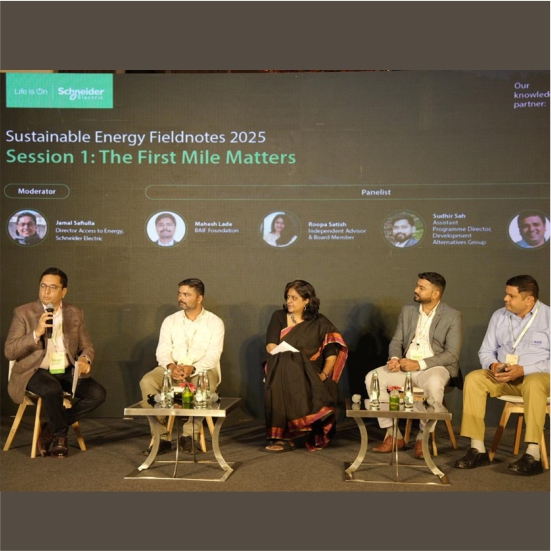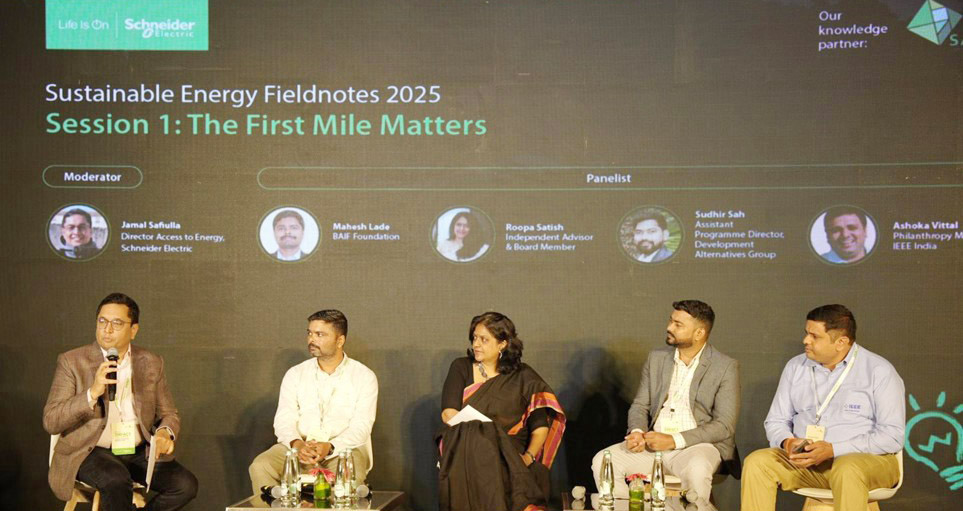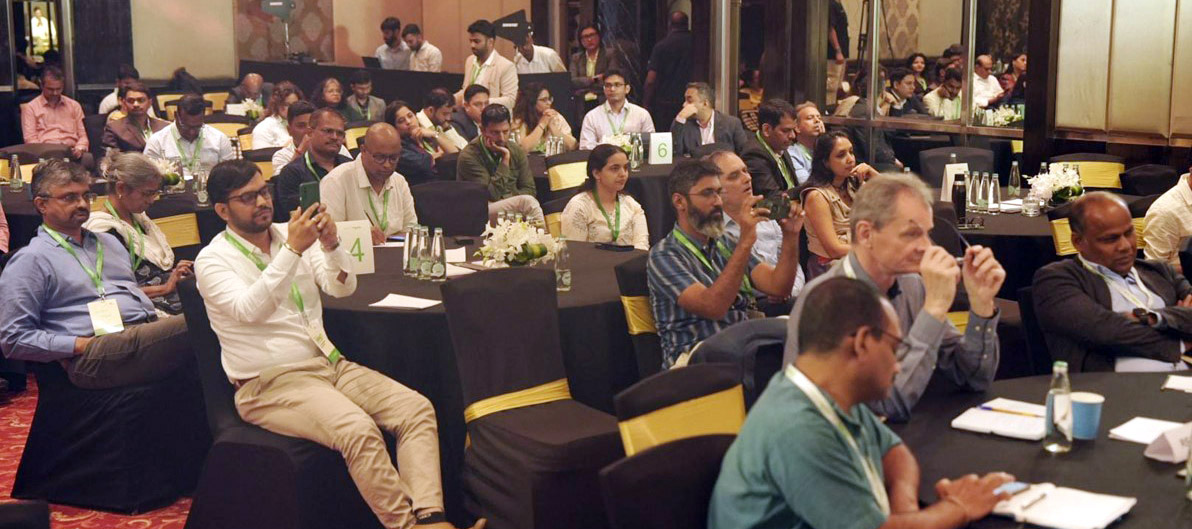
At the Sustainable Energy Fieldnotes 2025 in Mumbai, Development Alternatives’ Sudhir Sah emphasised that sustainable energy solutions must begin with community ownership and local needs. Showcasing the Urja Mandala Model, he highlighted how women-led collectives are driving rural electrification and green entrepreneurship. The “First Mile Matters” session spotlighted the importance of building adaptive, district-level ecosystems and designing for long-term impact within real-world funding constraints.
#SustainableEnergyFieldnotes2025

Panelists at “The First Mile Matters” session delve into community-led innovation for sustainable energy access
In Mumbai, the Sustainable Energy Fieldnotes 2025 – Collaborate to Scale, Turning Innovation into Impact brought together leaders, innovators, and funders to explore how energy innovations can translate into real-world impact. Hosted by Schneider Electric, with Sattva Consulting as the knowledge partner, the event focused on reflecting, reimagining, and scaling sustainable energy solutions for underserved communities.
Sudhir Sah, Associate Programme Director of the Sustainable Entrepreneurship Group at Development Alternatives, joined the panel “The First Mile Matters” to discuss the vital role grassroots energy programmes play in rural India—particularly when anchored in entrepreneurship. He emphasised that as rural energy needs evolve from agriculture to non-farm livelihoods, solutions must be co-designed with those who use them. He cited the Urja Mandala Model—developed by Development Alternatives in partnership with HSBC India—as a strong example. The model empowers women-led collectives to take charge of rural electrification and green enterprise in their own communities.
A key takeaway from the session was the need to strengthen meso-level entrepreneurship ecosystems—district-level systems that are responsive, resource-aware, and context-specific. Sudhir also pointed to the practical side of implementation: how effective programmes must work within the constraints of CSR funding and become increasingly cost-efficient as they grow.
He closed by reinforcing a simple but powerful truth: the first mile is where lasting change takes root. True energy access doesn’t start with the grid—it starts with the community.

Participants reflect on field-tested solutions and collaborative strategies for lasting energy impact